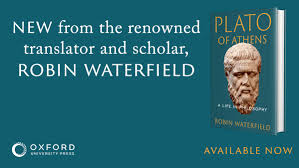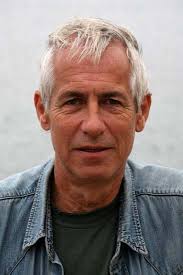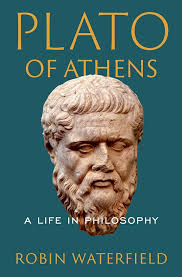Plato of Athens: A Life in Philosophy (2023 ) by Robin Waterfield
Good Reads meta-data is 255 pages rated 4.21 by 73 litizens.
Genre: Biography.
DNA: Greek.
Tagline: A new bottle for old wine.
Verdict: Old News.
Amazon web page opens with this sentence. So I thought it was a biography. How silly can I get? See below for an answer.
‘The first ever biography of the founder of Western philosophy.’

An account of the life and work of Plato (of Athens) from go to gone. It was a common name and became more common after his death, though it hardly seems necessary to say ‘of Athens’ since most of us never heard of all those others. Needless pedantry some might say. Right, Sal. (You either get it or you don’t. There is no try.)
The book pulls together a mass of material and relies mainly on ancient sources rather than the army ants of academic commentators that live off Plato’s corpus. Guilty of that myself. That reliance on the fragmentary remnants of ancient sources makes the book distinctive, though it is rather like assembling an incomplete jigsaw puzzle.
But wait, those ancient authors were not his contemporaries, apart from a very few, ahem, mainly Aristotle. Most of the venerable ancients the author scours wrote, such shards as survive, 400 or 500 years after Plato’s death. Ancient does not mean contemporary to Plato, though it certainly means closer, but does proximity mean accuracy? The assumption is that they had access to sources now lost which sources they seldom name.
The author sifts this material because it is, of course, contradictory. Even then scholars strove to be different. He, for example, denies the authenticity of the Platonic epistles while Ariel Helfer, Plato’s Letters (2023) affirms them. We readers are left no wiser in this clash of footnotes. The reasons Waterfield cites to reject the authenticity of a letter are the very reasons Helfer uses to affirm its legitimacy. Though these two books appeared in the same year, I doubt the authors’ paths crossed. The Englishman Waterfield on his Greek island, and Yankee Helfer in his hometown Straussian cocoon would not mix.
I gave in to the temptation to read this book because Amazon offered it as a biography, and I wondered how one could write a biography of Plato, who himself was reticent and from whose time so little has survived. That answer came quickly: It is not. It a contextualization of Plato’s works. Indeed, the book is a serial interpretation of the Plato’s dialogues with reference to the social and historical context of the times. When I realised that I reached for a paraphrase of Thomas Carlyle: Biography is history, but history is not biography.
Since I have spent so much time in the last several years with the difficulties of a biography of a Sixteenth Century figure, I was primed for this exercise. (You know whom I mean.)
The most biographical part of the account is the one we all want to know more about, Plato’s three trips to Syracuse, and these are given due weight, but no revelations follow. That is asking too much. And despite denigrating the Platonic letters, much use is made of two since they are the main source for the visits.

Aside: I tried to read a biography of Plato many years ago, Ludwig Marcuse, Plato and Dionysius: A Double Biography (1947), written as a see-it-now novel in which Dionysius stands in for Hitler and Plato for Churchill. Not recommended.
A reader particularly interested in these insular adventures might do better to read Mary Renault’s novel The Mask of Apollo (1966). Surely banned in Florida for its casual acceptance of homosexuality. Indeed, most ancient Greek texts would have to be banned for the same reason. Thus does the world get smaller and smaller.

